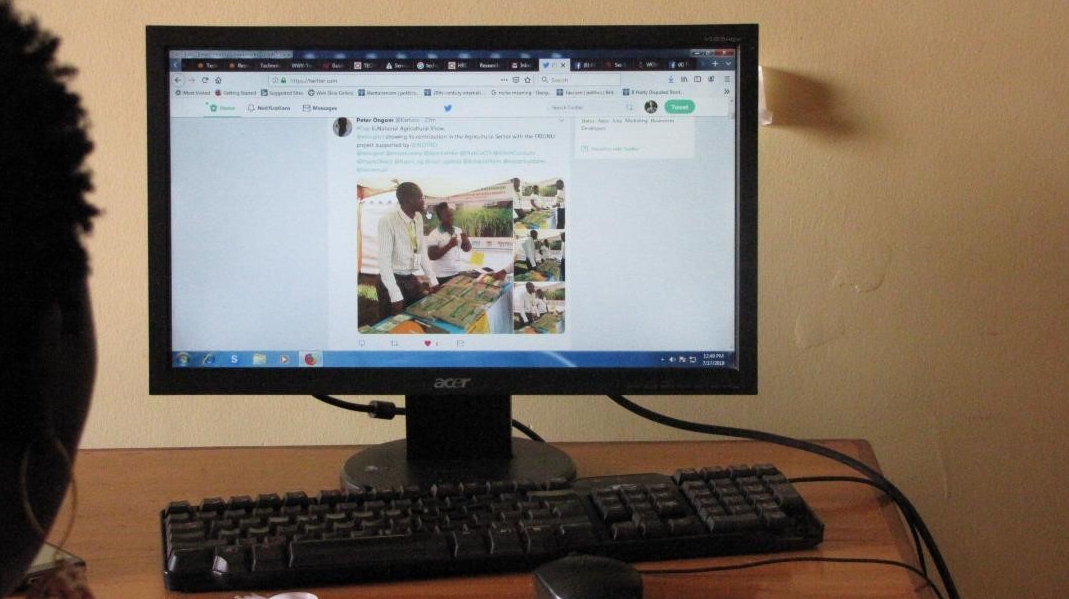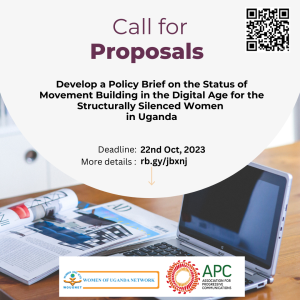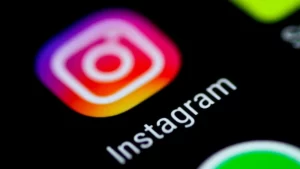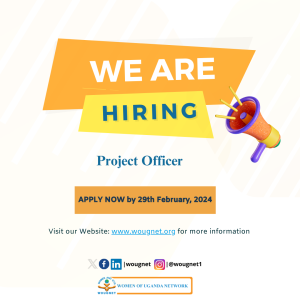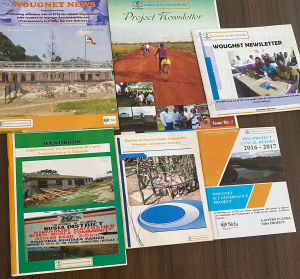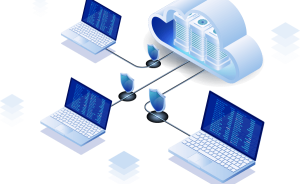As a way to prepare for the 16 Days of Activism against Gender-Based Violence (GBV) which is an annual commemoration, Women of Uganda Network (WOUGNET) conducted a twitter chat on 24th November 2017 under the theme “Translating Access into Empowerment”. This was to reflect on the organization’s work in phase II of the Women’s Rights Online (WRO) project as different Women’s Rights Organizations (WRO), activists and interested individuals in Uganda prepare to join the rest of the world for the 16 Days of Activism against GBV celebrations. The project is implemented by WOUGNET with World Wide Web Foundation (WWWF) and UN Women Fund for Gender Equality.
With the hashtag #WROUganda, WOUGNET staff and all her partners planned on various issues to be discussed during the twitter chat including internet access, policies or laws that protect women’s rights online and promote women’s empowerment and among others. The twitter chat started at 2:00 pm EAT with all WOUGNET staff who were in and out of office tweeting to the hashtag. Eleven questions were being prepared and asked to guide the conversations. Responses generally showed that women’s access to the internet is improving. Some women are now able to access relevant information on Sexual and Reproductive Health and Rights (SRHR), Education opportunities, acquire knowledge and increased opportunities to access avenues that can improve their livelihoods through education, finances, legal empowerment, and support. During the chat, different participants responded to the question of how access to the internet has empowered women and enabled them to realize their potential differently. Some of the response was; the Internet is a platform which enables women to air out their views, interact and connect with like-minded individuals, organizations and ultimately create change and dialogue about the plight of women.
This is because the Internet has freedom of speech and has made women to gain a voice and speak with confidence online since is a safer platform for women. Women are now better informed of the laws and policies in Uganda and women’s networks have expanded beyond existing boundaries. Even though some women have access to the internet, others are still not able to because of high cost for internet bundles, overwhelming household responsibilities, connectivity issues, lack of local and relevant content online, lack of enough online safety and no electricity to power their mobile phones to access the internet and yet the role of government such as the Uganda Communications Commission (UCC) has full control of the internet. Participants had diverse answers on what needs to be done to improve women’s access to the internet.
They suggested that there is a need to combat harassment of women online and have collaboration between the private and public sector. The need for women to be involved when policies are being shaped, do away with patriarchal systems that have for so long forced women to be afraid of reporting online and offline violence and has made some women think it is okay to go through violence. Participants also mentioned that the Internet should be made more accessible and affordable, the need to identify the main obstacles facing women in exercising their rights on the internet through research, share unpaid care work to enable women create time to surf the internet, encourage female involvement in ICT-related subjects at early stages schools, provide digital literacy training for women. They urged the need for awareness done in regards to laws that protect women against insecurity online, support implementation of policies & strategies that advance the status of women, design specific tech policy to tackle and overcome the steep inequalities of gender, education and income, focus on digital empowerment training for women entrepreneurs and review policy processes to make them more gender-inclusive. During the chat, top posts were on Women’s Rights Online report on how access can be translated into empowerment, improve access & affordability, the focus on digital empowerment training for women entrepreneurs, prioritizing relevant online content for citizen participation, protection of women’s digital rights, bringing to an end gender-based violence online and offline.
Related topics had 16 Days of Activism, Women’s Rights Online, ICT for all, #women, #Uganda and #digisecug. “The benefits that the internet avails us are enormous. If all women had access to the internet then women would be able to be more involved in the economic, political and social development of their communities”, Zimba Women By the end of the twitter chat, WOUGNET was glad to have made 412,026 impressions, 73,995 reaches, 45.5% shared original posts, 35.1% retweets and 19.4% replies albeit participants were from different parts of the world. Sentiments were 27.6% positive, 4.5% negative and 67.9% neutral. The posts made in that day were 134 by 27 users with demographics of 82.4% women and 17.6% men. The top sources were 50% desktop/web, 38.1% android, 6% mobile web, 5.2% iPhone and 0.7% safari. The top sites were twitter.com and webfoundation.org. WOUGNET has and is still doing a lot to ensure that women access the internet and remain safe online. The organization recognized Web Foundation for their work in women’s access to the internet and thanked all her esteemed partners in providing and campaigning for Internet Access and Women’s Rights Online in diverse fields. Gratitude was shown to CIPESA, Web Foundation, Zimba Women, BarefootLaw Uganda, the entire WOUGNET team and all participants. WOUGNET wished all the Ugandan women and men a fruitful 16 Days of Activism against GBV deliberations aimed at achieving goal 5 of the SDGs on gender equality and women’s empowerment.
By Sandra Aceng

